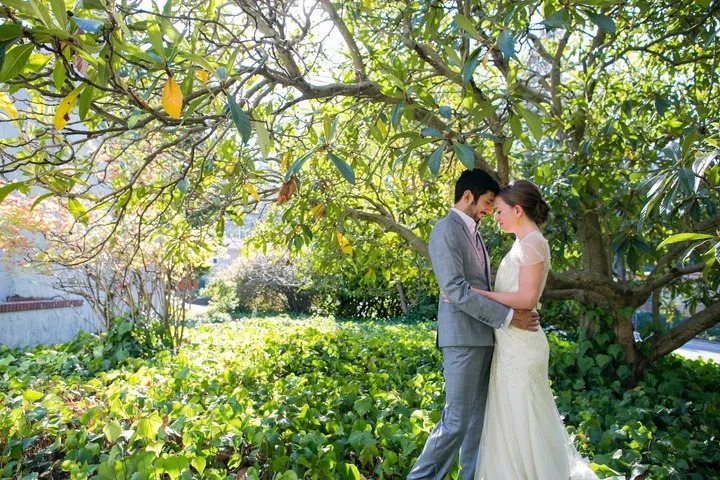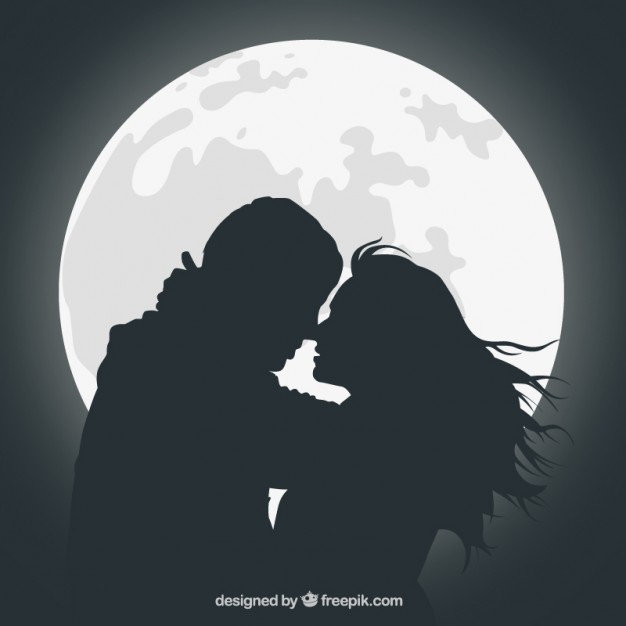I’ve been an activist since I stood in front of my school and gave a presentation in the sixth grade about mountain gorillas and why their habitat needs protection. In college, my activism began slanting toward the riskier side.
Over the years, I’ve helped to coordinate mass street protests against police brutality, blockaded logging roads to protect Indigenous rights and disrupted financial institutions to pressure them to stop fossil fuel investments.
I have been a part of hundreds of protests over the years. I specialize in (and I’ll admit, I enjoy) the disruptive side of the activist spectrum.
Though I consider it to be an effective way of making change, not every protest is equally strategic. When I was charged with a felony for an especially ill-advised protest against Whole Foods in Washington, D.C., it affected my life dramatically.
Working with a group I’d never worked with before, I got in way over my head.
There was the most obvious, glaring way, of course: the threat of prison time. The original charge carried a possibility of five to eight years in prison. In the meantime, it would be the better part of a year before I knew what the outcome would be.
I met Dan around the same time, and coincidentally it turned out we had tons of mutual friends. We found out we grew up 45 minutes away from each other — and neither of us had any intention of moving back to where we’d grown up. I was enchanted by the way his eyes crinkled when he smiled, and by his soft beard. He had nice nail beds. And he was well-read in things I knew nothing about: the history of the CIA and classroom pedagogy. He could capably repair his own bicycle.

Dan was an activist, too. I knew vaguely who he was through his work with a collective that did legal support for activists and mass demonstrations. I’d also read things he’d written in zines and blogs but hadn’t been able to conjure what he looked like. He was more striking in real life, and he was experienced in areas of activism I’d taken for granted.
While I awaited my next court date, I had to submit to the weekly drug tests and calls with my probation officer. I also began experiencing profound post-traumatic stress disorder, which I carried with me everywhere.
In hindsight, the threat of PTSD or other mental health consequences has been simmering for a while. There was the trauma of the arrest itself, of course. But it was compounded by past traumatic arrests and my experience working on serious injustices for several years prior. This is sometimes called secondhand trauma or compassion fatigue. I had added direct trauma right on top of that, and as a result I was afraid to leave my apartment some days. The sound of sirens gave me panic attacks. I jumped at the sound of squealing tires.
Until my charges were cleared, I also had to report any contact with the police. If I were taken into custody, I could be extradited to the District of Columbia and put in jail until my trial date. This meant that I had to steer clear of any protests where I might be in the same vicinity as a cop. And while this isolated me from my usual community, Dan’s form of activism didn’t carry the same risks.
Somehow, as I felt my old life drifting away, Dan started popping up everywhere: at parties, on the train, in my neighborhood. I liked that he was a teacher, and he had a sharp sense of humor: one that others could read as mean but made my East Coast heart feel right at home.
Crucially, my felony charge did not seem to bother him. Since Dan was also an activist, I wasn’t nervous about telling him, but I was nervous how it might affect our future. I told him almost right away (since being charged with a felony takes up such a large amount of mental energy), and he was entirely supportive and assured me that I would be fine.
When I mentioned that this might affect things between us, he simply said, “We’ll figure it out.” (This, I would come to learn, was exactly his style: Everything has a solution.)
It might have been off-putting to someone else to date someone who was being charged with a felony and was facing prison time. Dan was pretty unfazed: On one of our first dates, over Thai food, he joked he’d visit me in prison and bring me a file baked into a cake.
His timing couldn’t have been better. Cut off from my previous outlet for rage and a mass demonstration brewing, I needed some kind of activist project to keep me busy. Dan, knowing my limitations, recruited me for the legal support team that would be, in three months’ time, supporting thousands of protesters in a single day.
Legal support is an invisible kind of work that often happens outside the protest itself, but it’s an essential ingredient to any successful direct action. It is not glamorous: It’s a lot of meetings and logistics. It means training as many activists as possible in their rights: to remain silent, to an attorney and to protection from illegal searches.
It means telling people (many times) that however nice they seem and however hard they try to pretend to be your friend: Do not talk to the police during a protest. It means filling out lots of forms and setting up databases. It is not sexy, and yet there we were, flirting up a storm over training curriculums and meeting agendas.
A well-facilitated meeting, as it turns out, is my love language. We turned these working group meetings into excuses to get dinner or drinks, and soon we were hanging out three or four nights a week. By the time the actual protest rolled around, we were “official.” We decided very matter-of-factly over bagels one morning.
During the protest, we helped to run the legal office, answering the hotline for activists to call when they were arrested. We dispatched legal observers to watch the cops and report misconduct. We helped to track citation numbers and arrestees, and did our best to make sure everyone who went into police custody came out as quickly as possible. The day of a protest is always high-energy and high-stakes.
In my years of activism, I had learned a few things. Not just how to block a road but also the emotional side of activist work. There is a phenomenon where enduring a high-pressure and adrenaline-fueled activity together can make you feel things for another person that, while true in the moment, are not always long-lasting.
Relationships forged in the lead-up to a demonstration often don’t survive the aftermath. They can’t stand the harsh light of mundane life: Without the adrenaline and shared purpose, they wither. When not fighting for a cause, they can’t sustain the ordinary, boring administration of a shared life. Brushing your teeth next to another person for years on end changes things.
Could our relationship endure the “civilian” world? I wasn’t sure. Facing a felony has a way of taking up quite a bit of brain space, and I wasn’t sure if I was ready to open up my life to anything serious.
I vowed to take things week by week, but by the time I reached a deal on my case, we were in love. I ended up taking pretrial diversion with community service, and I was on probation for a year.
This kind of offer, to be clear, was available to me because of an immense amount of privilege. I am white, college-educated and a native English speaker. Were these — or any number of other layers of privilege — not the case, this would be a different essay. This outcome illuminated for me how elusive and complicated justice is in our society. Too often the system is rigged against the people it says it protects.
When I left the courtroom after the decision, Dan was the first person I called. We realized, the same way a protest takes a community, our relationship did, too. We have often lived with housemates and traveled with groups of friends rather than on our own.
At our wedding, we made vows not only to each other but also to our community, including some of the same people we’d done legal support with when we were first dating. We promised to love and support them the way they had loved and supported us. We asked them to make vows to us, too. During the reception, some of our activist friends got drunk and jokingly wrote the legal support hotline on their arms, “In case there’s a riot at the reception.”
Dan and I didn’t need to: We knew the number by heart. We also knew that anyone who would be staffing the line was probably already at the wedding.
Now we look — from the outside — like a boring married couple with a house, a kid and a couple of cats, living on a quiet street in California. We play board games and go to the library and make jam from the plums in our garden in the summer. Sometimes after our son goes to bed, Dan jokes that he will never know how cool we used to be. I shake my head, “We’ve never given him a reason to think we were ever cool.” We laugh and usually fall asleep before 10 p.m.
But when I come home late from a protest, Dan is the one who helps me out of my clothes on the porch, so that I don’t track tear gas into the house where our son sleeps. We still organize legal support for protests together and pore over legal training agendas, discussing the pedagogy of teaching people their rights. This is what it means to be part of a movement together.
It is easy to be grateful for Dan. There is a shorthand between us, not just as longtime partners but as activists. But some days it could be easy to forget the importance of the boring, mundane bits. The little things that add up to a life that we came so close to not having.
Sometimes I think about what I would have missed had I actually been sent to prison for as long as the district attorney originally intended: our first apartment; the trip to Argentina, where Dan stole my empanadas; our wedding; our first cat. I would have missed countless potlucks and inside jokes and goodnight kisses. It leaves me breathless when I think about how easily it could have been cut short — and how often it is cut short for people with incarcerated loved ones.
What I learned from this experience is the foundation for my prison-abolitionist beliefs. Without having experienced it, you cannot know just how antithetical to “justice” the system truly is. It is designed for cruelty and punishment, and it is designed to disproportionately administer that cruelty to the most historically marginalized people and communities in our society.
The fact that I emerged from this experience with PTSD still means that I got lucky. And though some people would think that this experience means I should have “learned my lesson,” it has made me even more passionate about fighting for justice and causing good trouble. Unsurprisingly, though, I’m even more adamant about good strategy and solid action logic.

